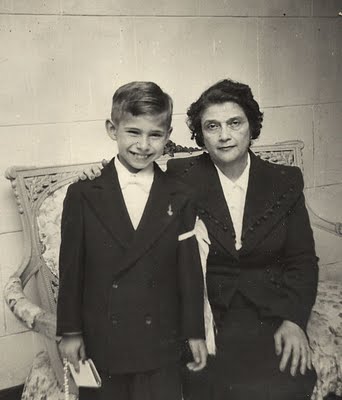Transubstantiating Into HTML
Saturday, November 14, 2009

I think that the worst fact about good times is that we rarely realize that they are indeed good times. At least that has been the case for me. Looking back at going in a private jet, a Cessna Citation, to León, Guanajuato for a magazine to photograph a story on a Canadian pioneer flyer living in San Miguel Allende, I now know that for contemporary photographers, that would simply not happen. The magazine would find a photographer in San Miguel and instruct her to take some quick ones and send them back via e-mail.
In my files I have portraits of many acting and directing luminaries of film. As an example I am most proud of my medium format camera, and studio lights portrait of Werner Herzog. At the time of my picture he had come to Vancouver sponsored by the Goethe Institute in Vancouver. The institute is long gone from Vancouver and directors, actors, authors are now interviewed from their home (meaning on the phone) and some less that honest publications hide the fact that many of those interviews are question-and-answer ones via email.
Saturday was such a melancholy one, (besides the fact that it was visually gray and dreary) that I postponed the writing of Saturday’s blog to today. Today, Sunday, brought a scary NY Times Magazine that has articles and articles about how our life has changed and is changing.
Perhaps the most depressing of the articles is a review of Harold Evans’ My Paper Chase- True Stories of Vanished Times in the NY Times Book Review. The review is headed by : When Type Was Poured Hot – In his new memoir, Harold Evans recalls an exuberant run into 20th–century journalism.
By the random nature of looking for DVD films at the Main Branch of the Vancouver Public Library I found a film called Edges of the Lord (the name becomes significant at the end of the film) directed by an unknown (for me) Yurek Bogayevicz about life in a little village in Poland during the brutal occupation of the Wehrmacht and the transporting of Jews in trains to their final solution. The film has the surprising casting of Willem Dafoe as the chain-smoking village priest and a string of child actors that is extraordinary. The film is rated R and Rebecca pointed this out to me. I took my chances and I think I was right in that the film (“I would not want to see it again, it was so depressing,” Rebecca told me.)had the three of us glued to the antique Sony Trinitron TV.
The realism of a young boy shooting an older young man who is systematically going through the possessions of Jews who managed to jump out of a slowing train, before killing them or handing them over to the Germans was brutal. Rebecca understood. I don’t think Lauren (7) did. But then when the film ended she said, “That was a good movie.”
The final scene has the four children being given their first communion by a most understanding Dafoe. When time comes to slip the wafer host into the mouth of our little heroic protagonist (a Jew, told by his parents, before he was sent to the village, to mimic Catholicism for his survival) he shows the boy that the wafer is not the round blessed one, the body of Christ, but the unblessed edges removed by the priest when making them. He is in cahoots with the boy and one religion respects the other.
I understood and when the appropriate time comes in the next few weeks I will have to explain to Rebecca (who will never have a first communion as her grandfather once did) what it is that transubstantiation is supposed to be. These mysteries, complex mysteries that they are, believe in them or not, bring in a level of complexity into one’s thought that will enrich one’s life.
A little boy, younger than our heroic Jewish protagonist wills himself to join a train going to his final destination. He is not Jewish. He is a fervent little Catholic boy who the director makes into a little Christ who feels he has been left alone by his father and willingly then goes towards his death.
Perhaps Rebecca will not see the film again. But once I explaina to her what was going on I hold my hopes that she will change her mind.
There is no more hot metal type, and journalism as I knew it is mostly gone. A memory of it is all we need to bring back a complexity in life that could not be simplified into HTML.






